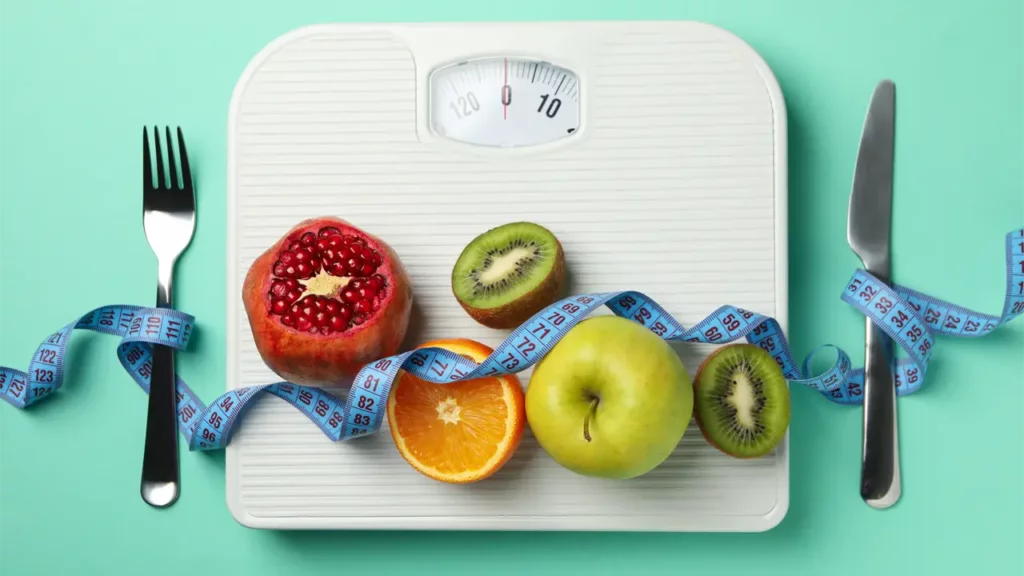Losing weight is not an easy thing, but it does not have to be a complicated process. Regardless of your goal, whether it is to lose weight, maintain weight or avoid weight gain, it is important to learn some facts about weight management. Here is a clear and easy to follow plan that can help you kick start the process.
1. Calories In vs. Calories Out
The fundamental principle of weight management is calories: the energy that foods and beverages contribute to your body. In order to maintain your weight, you need to take in the same amount of energy as you burn.
Calories In:
These originate from the foods and drinks you take. The best approach to controlling your weight is to take the right amounts of nutrients that are found in foods in the right proportions.
Calories Out:
Metabolism is the process by which your body uses up energy through essential body functions (including breathing and the breakdown of foods) and movement (including exercise, walking, or even standing up).
Weight loss involves using energy expenditure to be higher than energy intake, that is, taking fewer calories than you use. To gain weight, you try to consume more calories than you burn, while to lose weight, you try to burn more calories than you consume, to maintain weight, you try to burn approximately the same amount of calories as you consume.
2. Focus on Nutrient-Dense Foods
Though, counting calories can be useful, it is crucial to pay attention to the quality of the foods consumed, which are beneficial for the body. These include:
Vegetables and fruits: Rich in vitamins, minerals and fiber.
Whole grains:
Brown rice, oats and quinoa are rich in fiber and these foods make you feel full for a longer period of time.
Lean proteins:
Protein rich foods such as chicken, fish, legumes and tofu are important in the muscles and tissue repair work.
Healthy fats:
Avocados, nuts, seeds and olive oil are foods that can help fill you up and maintain the proper functioning of your cells.
These foods contain a lot of nutrients and are usually less in energy value than processed or sugary foods. When you choose these foods you will be avoiding a lot of empty calories which are very unhealthy for your weight.
3. Portion Control
Another important factor that has to do with weight management is portion control. Eating a lot of food, even nutritious foods, will make you gain weight if you take more calories than your body requires.
Here are a few tips for portion control:
- Another tip is to use small plates in order to control portion sizes.
- Learn when to stop eating so that you do not overeat during the day or night.
- Look at the serving sizes and the number of calories indicated on the labels of the foods that you eat.
- Avoiding overeating is easy when you practice portion control, eating slowly and being conscious of how your stomach feels.
4. Regular Physical Activity
Physical activity is an important aspect of weight management as it aids in calorie expenditure and muscle tissue preservation. Adults should try to do at least 150 minutes of moderate exercise or 75 minutes of vigorous activity every week.
Perform strength or resistance training activities at least two days a week to improve muscle mass. Muscle also requires more energy to be used than fat and this will assist in preventing one from becoming obese.
5. Consistency Over Perfection
Losing weight is not about going on a crash diet or having a list of dos and don’ts. It is about making right healthy decisions in the long term. It is the small things that can make a big difference – a bit less sugar, more vegetables, or a few more steps per day.
Remember, it is not a strict diet—so there will be days when you will not follow the plan. The important thing is to know that you are off course and then get yourself back on course as soon as possible. The key message, however, is that it is possible to achieve long-term weight loss and that is more important than the ability to be perfect.
Suggested Read: Laser Treatment
Conclusion
Weight management is all about knowing your body, eating right, exercising and being disciplined in your approach. When it comes to weight, what you really need to do is count calories, eat right, avoid overeating, exercise, and take proper care of yourself. The best way to achieve these goals is to begin with a small number of questions, be constant, and be patient.
